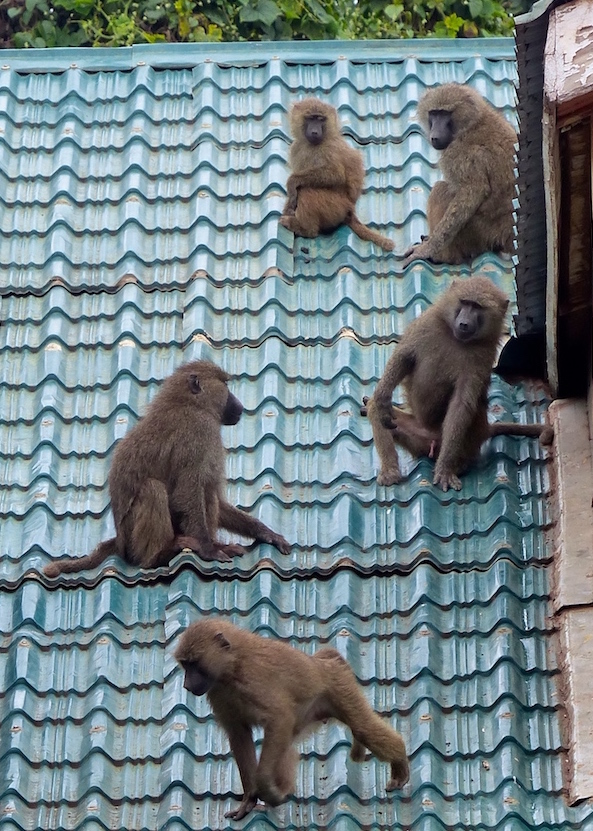Zak (2009)
 Zak et al (2009) carried out a study to test the role of testosterone on aggression. You can use this study for the following content in the biological approach:
Zak et al (2009) carried out a study to test the role of testosterone on aggression. You can use this study for the following content in the biological approach:
Research methods used in the biological approach.
Functions of hormones in human behaviour.
Ethical considerations in research in the biological approach.
The study may also be used in the human relationships option:
The role of biological factors in human relationships
The original study is available here.
Testosterone has a permissive effect on aggression. It appears that testosterone alone is not necessary for aggressive or violent behaviour. When aggressive mice are castrated, they become much less aggressive, in spite of the loss of testosterone. Notice - they don't become "not aggressive." When testosterone levels of castrated rats are then increased, there is a very low threshold for aggressive levels to return to previous levels - much lower than the original levels. In addition, even when testosterone levels are doubled, this does not double an animal's level of aggression. It appears that testosterone "helps aggression to happen" but that the roots of aggression must lie elsewhere.
In Sapolsky's classic essay "The Trouble with Testosterone," he shows that in a baboon society, baboons show aggression to the baboons below them in the hierarchy. When "level 3" baboons are injected with high levels of testosterone, they show greater aggression, but only against the baboons below them, not the ones at their level or above. So, it appears that testosterone increases a primate's aggression, but doesn't cause it.
The amygdala plays a key role in aggression. The amygdala communicates with the hypothalamus by way of a cable of neurons called the stria terminalis. When the amygdala is aroused, it sends electrical impulses called action potentials down the stria terminalis to the hypothalamus - and this appears to be the way that aggression works. Research by Kendrick & Drewett (1979) showed that if testosterone levels are artificially increased - and the amygdala is already sending action potentials down the stria terminalis - then testosterone increases the rate of the action potentials by shortening the resting time between them. It's like it has "turned up the volume."
There are several ways that people can be aggressive - not all of them physical. Testosterone also acts as an oxytocin antagonist. The study below uses a test very similar to Baumgartner et al. (2008) to see what the effect of testosterone will be.
To study the effect of testosterone on a male's generosity and sense of aggression.
In this study, Zak wanted to create "alpha males" to see how they would react in an online trust game. The sample was made up of 25 male students.
First, the researchers drew blood from the participants to establish baseline levels of testosterone. They then had the participants rub a gel on their shoulders. The participants were randomly allocated to one of two conditions: a prescription testosterone gel or a placebo. The men returned the next morning another blood test was done to record the actual increase in levels of testosterone in the participants. The treatment had doubled the amount of testosterone in the experimental condition.
Then the participants were asked to play the Ultimatum Game. Each participant in the game was told that he could be generous to another player with money he controlled - or he could be stingy. Stingy offers could be rejected by the other person. Rejected offers caused both men to lose all the money on the virtual table.
The study was a double-blind counter-balanced repeated measures design. The men returned four weeks later and repeated the procedure but this time got the other substance to rub on their shoulders.
The participants were 27% stingier when they had received the testosterone gel than when the received the placebo. The findings suggest that men with naturally high testosterone levels would be expected to be more selfish and also more likely to punish others for violations of social norms. When compared to the findings in Baumgarten's study, it appears that testosterone has the opposite effect of oxytocin - a rise in distrust and an increase in selfish behaviour.
- The study was a repeated measures design. This eliminated the variable of individual differences.
- Debriefing showed that the participants were unable to guess when they had received the treatment versus the placebo. There was also no evidence of demand characteristics.
- Whenever we use a placebo, there is the ethical consideration of deception. This needed to be justified and then revealed in the debriefing.
- The study was counter-balanced to show that order effects did not play a role in the results.
- The study is reductionist in its explanation of human aggression and generosity.
- The study measured testosterone levels but did not measure activity in the amygdala or hypothalamus. The study allows us to hypothesize that testosterone interferes with oxytocin.
- The situation is highly artificial and thus has low ecological validity. Since the levels of testosterone were artificially manipulated and the game was very simplistic, this may not explain the role of testosterone in real life situations.

 IB Docs (2) Team
IB Docs (2) Team
